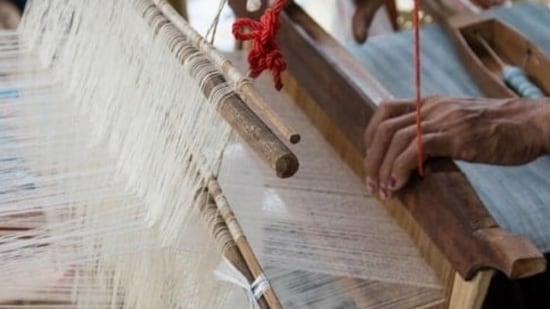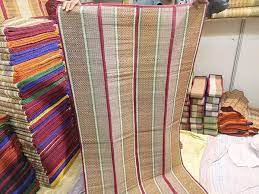Zero Waste Day: Embracing Sustainability in Textile through Khadi
Siby Kollappallil Joseph

International Zero Waste Day, observed on March 30th, highlights the urgent need to reduce waste and promote sustainable living. This year’s theme, “Towards Zero Waste in Fashion and Textiles,” emphasizes the significant environmental impact of the fashion industry. The fashion industry is one of the largest polluters globally, generating 92 million tonnes of textile waste annually.This is equivalent to a truckload of clothing being incinerated or sent to landfills every second.This alarming statistic underscores the need for sustainable practices in the sector.
The International Day of Zero Waste offers a valuable opportunity to highlight the relevance of Khadi, a traditional Indian textile, in promoting
sustainability and reducing waste.
Khadi symbolizes zero waste in textile industry.Here I am reminded of a story narrated by a speaker of a session on Khadi citing from the Buddha’s life on zero waste and recycling.A disciple asks the Buddha for a new robe, and the Buddha gives him a new one. However, Buddha finds out from the disciple what he did with his old robe which reveals a creative and resourceful approach to reuse and recycling.The disciple’s old robe was recycled multiple times. When replaced with a new one, the old one used as a bedspread, later the old bedspread was used as a window curtain, after that the old curtain was used to handle hot utensils in the kitchen, the old kitchen cloths were used to mop the floor, and finally, the old rug used for mopping was repurposed as a source of wicks for the oil lamp. This story was narrated to tell how Khadi cloth can be recycled and reused contributing towards conservation and sustainability.

Khadi popularised by Mahatma Gandhi during the freedom struggle offers a sustainable alternative for achieving zero waste.Its eco-friendly production process, environmental advantages, and cultural significance make it an attractive choice for those seeking sustainable fashion options. Khadi’s benefits include eco-friendly production through hand-spun and handwoven natural fibers, minimizing waste and environmental impact. Additionally, Khadi supports organic cotton farming, lower water consumption, and reduced chemical processing. It also supports local artisans, preserves India’s rich cultural heritage, and promotes fair labour practices. Khadi fabric is versatile, durable, breathable, and suitable for various temperatures and occasions, making it a popular choice for sustainable fashion.
Let us make the observance of International Zero Waste Day an opportunity to make a call to embrace Khadi and sustainable living thereby contributing towards a future where waste is minimized to the bare minimum, and the environment is preserved for generations to come.
———-
This report was prepared by Dr. Siby K. Joseph ,Director, Sri Jamnalal Bajaj Memorial Library and Research Centre for Gandhian Studies,
Sevagram Ashram Pratishthan, Sevagram,Wardha- 442102, Maharashtra (INDIA) on the eve of International Zero Waste Day
Email: directorjbmlrc@gmail.com



